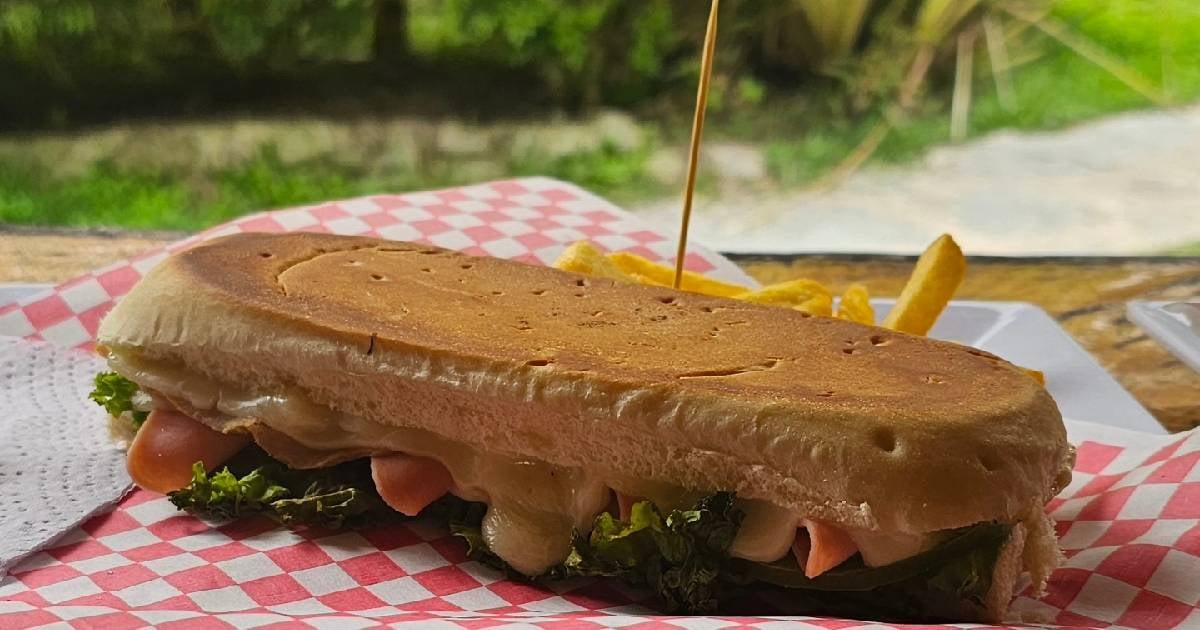
Related videos:
The anticipated Cuban Sandwich Annual Festival returned this weekend to the city of Tampa, bringing together hundreds of attendees in the historic Ybor City district to celebrate this iconic dish. The event, already a local tradition, attracted chefs, restaurants, and enthusiasts of Cuban cuisine.
The festival, which has now reached its 14th edition, included a competition among various establishments in the region to determine who prepared the best Cuban sandwich of the year. Among the judges were renowned culinary critics and personalities from the gastronomic field. In addition, the event featured activities such as live music, cultural exhibitions, and tastings of traditional food.
The Cuban sandwich, a culinary emblem of the Hispanic community in Florida, is traditionally made with Cuban bread, roasted pork, ham, Swiss cheese, pickles, and mustard, pressed until it achieves a crispy texture.
In Tampa, it is common to add salami to the sandwich, reflecting the influence of the Italian community in the city. The dispute between Tampa and Miami regarding the authenticity and origin of the Cuban sandwich remains a recurring topic, and this festival serves as a platform to celebrate Tampa's local tradition.
At the end of the event, the winners of the festival were announced, and one of the highlights was Tampeno Fish and Meat Market, which secured second place in the category of best Cuban sandwich overall. The news was met with enthusiasm, and the Tampeno team expressed their gratitude to the community for this prestigious honor.
Refreshing drinks also played a prominent role in the festival. A colorful snow cone cart caught the attention of attendees with a wide variety of flavors such as coconut, soursop, strawberry, and tamarind.
On the other hand, the guarapos stand was one of the most visited, where attendees were able to enjoy this refreshing natural drink.
The idea for the Festival was born in October 2011, when Víctor Padilla and his wife Jolie González-Padilla were looking for ideas for an event that the city of Tampa could enjoy, and they realized that the Cuban sandwich was the star in Tampa.
At that moment, Yvonne Capin, a member of the Tampa City Council, agreed with the idea and presented a resolution that referred to the Cuban as the signature sandwich of Tampa.
Last year, chefs and volunteers collaborated to create the largest Cuban sandwich in history, reaching a length of just over 365 feet.
The organizers estimated that the sandwich could feed more than 750 people and worked hard to keep it fresh.
Frequently Asked Questions about the Annual Cuban Sandwich Festival in Tampa
What is the Annual Cuban Sandwich Festival in Tampa?
The Annual Cuban Sandwich Festival in Tampa is a culinary event that celebrates the iconic Cuban sandwich. It brings together chefs, restaurants, and enthusiasts of Cuban cuisine in Ybor City to enjoy competitions, live music, and tastings of traditional food.
What is the difference between the Cuban sandwich from Tampa and the one from Miami?
The main difference between the Cuban sandwich from Tampa and that from Miami is the inclusion of salami in the Tampa version. This variation reflects the influence of the Italian community in the city, while the traditional Cuban sandwich is made with Cuban bread, roast pork, ham, Swiss cheese, pickles, and mustard.
How did the tradition of the Cuban Sandwich Festival in Tampa begin?
The tradition of the Cuban Sandwich Festival in Tampa began in October 2011, when Víctor Padilla and his wife Jolie González-Padilla decided to create an event to celebrate this popular snack. The idea was supported by Yvonne Capin, a member of the Tampa City Council, who promoted a resolution to recognize the Cuban sandwich as the city's iconic sandwich.
What activities are offered at the Annual Cuban Sandwich Festival?
The festival includes a variety of activities such as competitions to determine the best Cuban sandwich, live music, cultural exhibitions, and tastings of traditional food. Additionally, attendees can enjoy refreshing beverages like piraguas and guarapos.
Filed under: